On the precipice of the 2024 MLS season, many eyes will point in the direction of Lionel Messi and Inter Miami. But beneath the surface of the icon’s first full season in the league, MLS has issues over its TV audience, growing distance among fans, and a referee’s strike that are major causes for concern.
Major League Soccer is set to kick off tonight when its flagship team Inter Miami takes on Real Salt Lake from DRV PNK Stadium. On the surface it’s a game set up to showcase the flair and skill of an Miami side that has Lionel Messi, Luis Suarez, Jordi Alba, and young talents like Diego Gomez and David Ruiz.
I'm going to watch every Inter Miami game if they Somehow Re-unite Messi – Alba – Suarez – Busquets. pic.twitter.com/KI7AQpZC5R
— ACE (fan) (@FCB_ACEE) July 18, 2023
Dig a little deeper and Inter Miami has a lot of issues, however.
First, there’s the age of the team — Inter Miami has mortgaged its season on the backs of players who are well past their primes. Injuries have already crept their way into the squad in the preseason, both with the older and younger players, but even if Messi manages to avoid the injury bug all year long, his busy international schedule could keep him away from MLS pitches.
He could miss up to eight regular season matches due to this summer’s Copa America, and if he were to get an invite to play in the Olympics, he could miss half of the season altogether.
On top of a potential lack of continuity, there is the absolute disaster that was Miami’s preseason tour. The club was manhandled by the biggest fish on its plate, Al Nassr, losing 6-0, and has won just one game since September of last year.
Inter Miami seems to be a perfect metaphor for MLS entering the new season — a shiny package wrapped up to look pretty, with a lot of flaws beneath the gilded surface. Heading into its 29th season, MLS still has a lot of questions to answer about where it’s going and what it has become.
The State of MLS Heading Into 2024
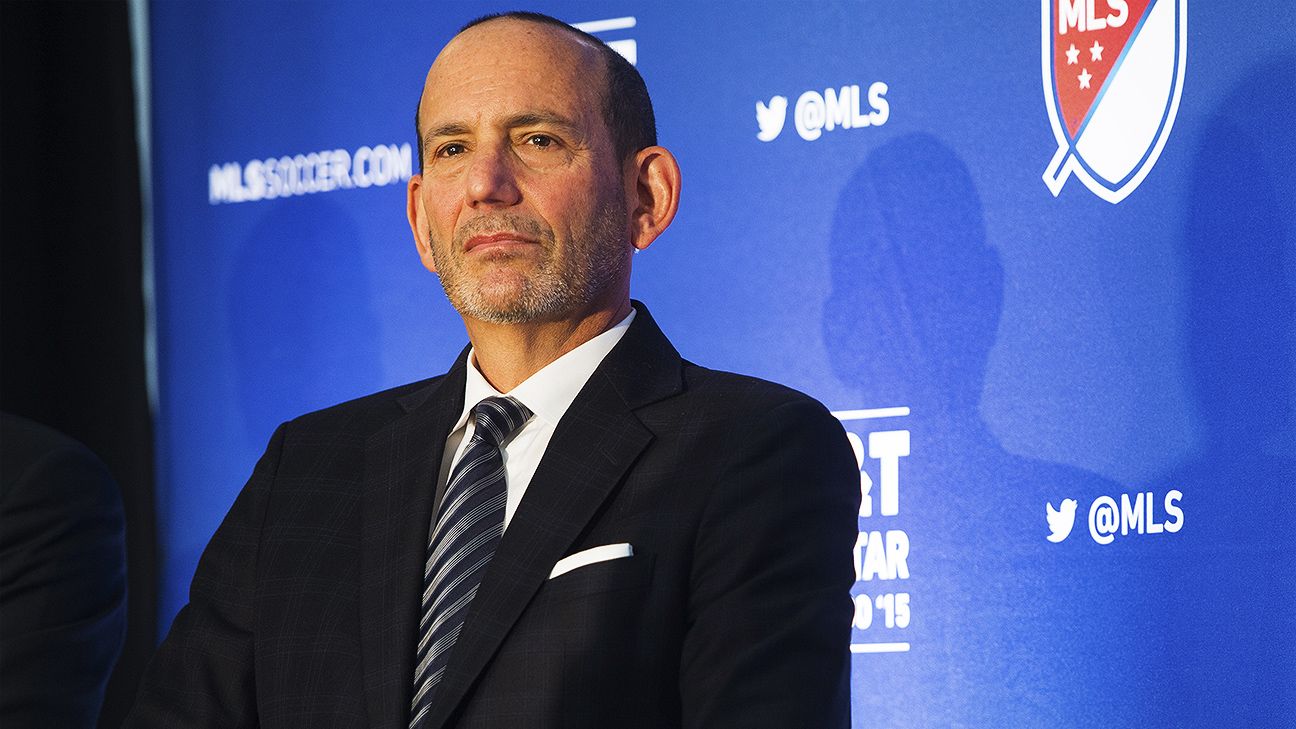
Make no mistake about it, MLS has grown tenfold over the course of a decade. The league will eventually be a 30-team league with more than 80% of teams playing in soccer-specific stadiums. The league has become a player in the global market with some key transfers to Europe, and a launching pad for some of the top young South American prospects.
Some MLS clubs have successful academies like the Philadelphia Union, NYCFC, FC Dallas, and the LA Galaxy, who are producing and finding talents that can not only play for the United States men’s national team but other countries as well.
Don Garber’s first mission when he became MLS commissioner was to ensure the survival of the league, and that has long been completed. His second mission to make MLS financially viable has also been check-marked. As a whole, the league has a stable footprint, stadiums, strong attendance, and good sponsorship dollars.
Some teams are financially more viable than others, but in a soon-to-be 30-team league, at this point that is a given.
Still, fans of the league are ready for MLS to take the next step. Fans and pundits alike are tired of the training wheels and lack of transparency that surrounds the league, which has delusions of big league grandeurs. In reality, MLS still needs a lot from its fans, more than the NFL or MLB for example, to push its product forward.
If one can compare where MLS is at after 29 years it’s like the NHL, which has a niche audience. However, MLS is even more niche given the fact that soccer fans are severely broken across many leagues from all over the world, and they seem to not be able to unite to fully support the domestic league in the United States.
For those who have taken the MLS ride, they are worried as to what will become of the league that seems to be fumbling its biggest moment in history: Having Messi play in MLS.
TV Audience
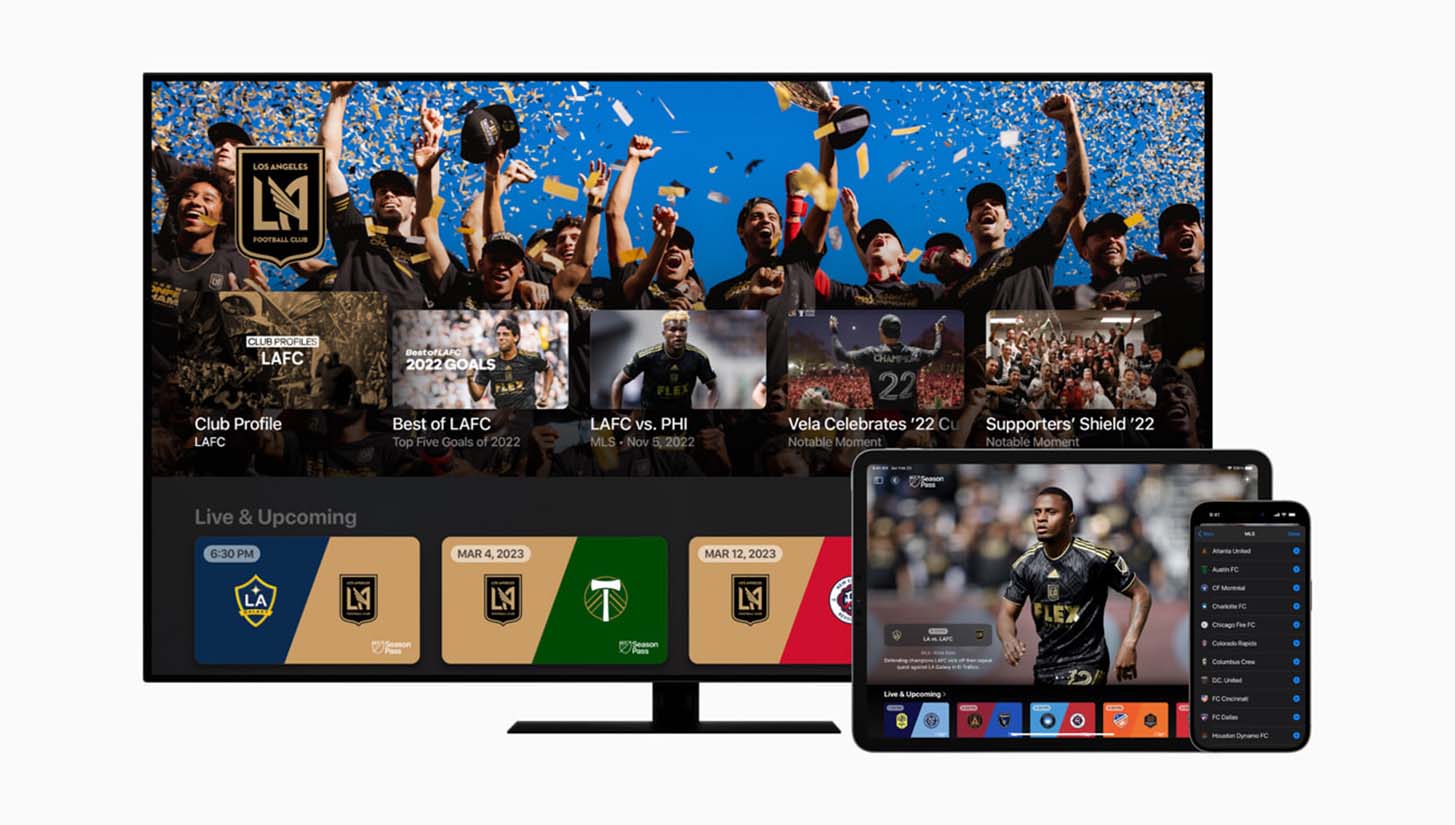
According to a Sports Business Journal report, MLS Season Pass has 2 million subscribers, a relatively small number when considering that the average MLB game rating on ESPN was 1.5 million viewers in 2023.
Apple nor MLS has provided in depth numbers of how many people actually watch or stream a game live or on a later date, and the objective of the MLS and Apple deal is very different from the one the NBA or MLB has on network and cable television. Apple and MLS are interested in subscribers, viewership comes in second.
Early in February, the Apple TV product was dealt a blow to its pride when returning Daily Show host Jon Stewart, who had an Apple TV+ show in The Problem from 2021 to 2023, called the streaming service “small” in an interview on CBS Mornings and compared it to “living in Malibu” when discussing how niche it was.
In a strange way Messi is not about just getting subscribers to MLS Season Pass, Messi is a catalyst to grow the entirety of Apple TV across the board, making his deal of revenue share even more important and intelligent for the Argentine.
Still, many observers believe the Apple and MLS deal will hurt the league in the long run, and that putting the greatest player in history behind a paywall like Apple deprives a casual fan any chance to catch Messi and possibly convert a new fan. MLS’ lack of presence in a major sports network does little to grow its product on a mainstream level, rather reducing it to more targeted talk shows like Futbol Americas or podcasts.
And outside the occasional SportsCenter highlight package, major sports pundits like Stephen A. Smith aren’t talking soccer. In fact, the only time Smith mentioned Messi going to Inter Miami, he compared it to LeBron James playing in the NBA G-League. Hardly a selling point for MLS.
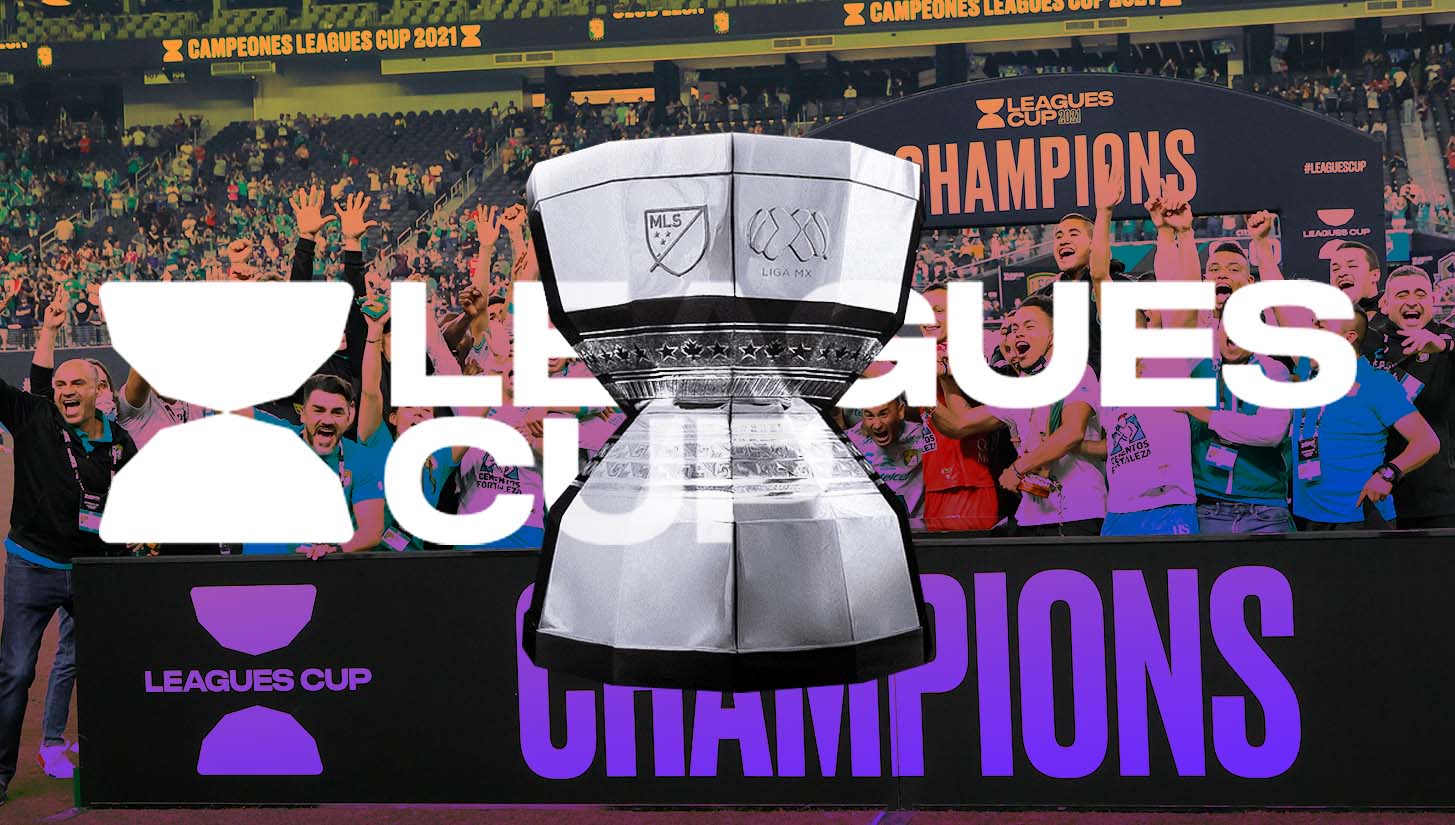
MLS has also created meaningless, money making, makeshift tournaments like the Leagues Cup, which not only splits the MLS season in two, but it also deviates clubs from focusing on winning CONCACAF Champions Cup or the U.S. Open Cup.
Garber mentioned in various press conferences that MLS would be open to having more leagues participate in growing the Leagues Cup, something many feel is MLS looking to monopolize an international tournament under their roof, to gain all the revenue, and not truly look to win the CCC or try to gain entry into a prestigious tournament like Copa Libertadores.
MLS wants to live in its bubble and basically ignore the rest of the world.
Salary Cap and Roster Rules
In a season that was designed to springboard MLS to the next level, fans were severely disappointed to see that MLS did not raise its salary cap. Worse yet, many fans are at a loss with MLS’ roster building functions.
Today, few if any really understand what TAM, GAM, or allocation funds properly do. What they see instead is that NYCFC spends considerably less than Inter Miami, and it seems that only Inter Miami can afford high priced talents all over the field, while other clubs are left doing what they can outside of certain positions.
Transparency has not been a word associated with MLS roster building for a long time, and it’s no surprise that fans can feel that certain teams have a green light to bend the rules, while others must follow a strict code of spending.
For the foreseeable future, the salary cap will stay as it is under the CBA. With the 2026 World Cup right around the corner, it is a missed opportunity to even out the attack-heavy rosters across the league.
A Referee Strike
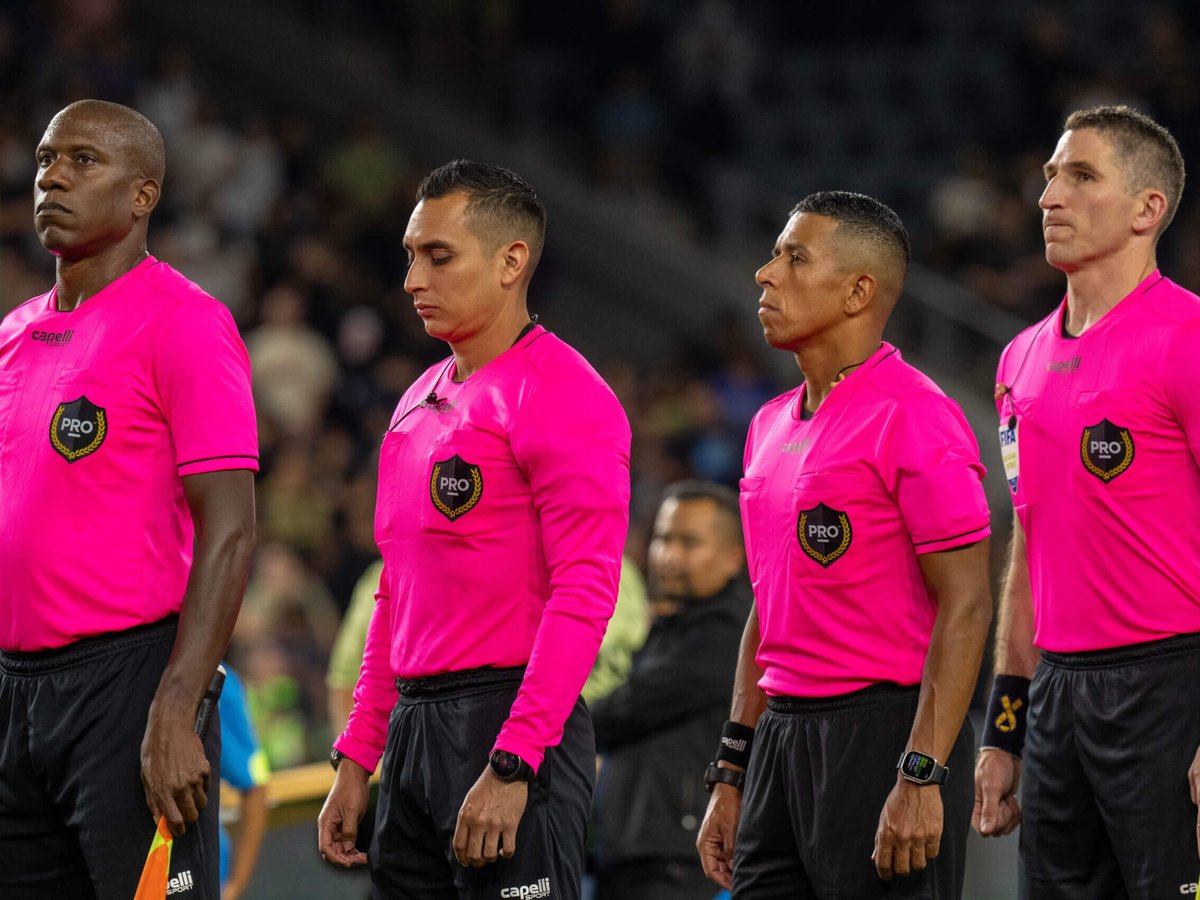
As of this writing, MLS is set to begin its season with secondary referees. It has been reported the league currently has up to 60 replacement officials standing by to start the MLS season.
The Professional Referees Organization (PRO) and Professional Soccer Referees Association (PRSA) did not reach a new collective bargaining agreement with MLS for the 2024 season.
“We made meaningful progress during recent bargaining, agreeing to fair pay increases, and addressing many of the PSRA’s concerns with respect to non-economic items,” said PRO general manager Mark Geiger in a statement. “This represented approximately a 25 percent overall increase over 2023 when comparing salary, retainers, game fees, and benefits plus the addition of business class travel for the MLS Cup Playoffs. The result of the membership vote is disappointing.
“The PSRA has rejected a no strike/no lockout proposal from PRO through the 2024 MLS Cup, which, along with their public strike authorization, has created significant risk as the 2024 season begins. We are left with no choice but to institute a lockout and use qualified non-bargaining unit officials so that games can go ahead as scheduled.”
While not a good look, historically MLS has gone down to the wire before with CBA negotiations — it happened in the last CBA with the players and now with the referees.
Still, MLS has a long history of poor officiating, and is a referee culture that relies heavily on VAR, usually with a lack of firm decision making from the match official. It is probably the area in dire need of improving the most.
The US Open Cup
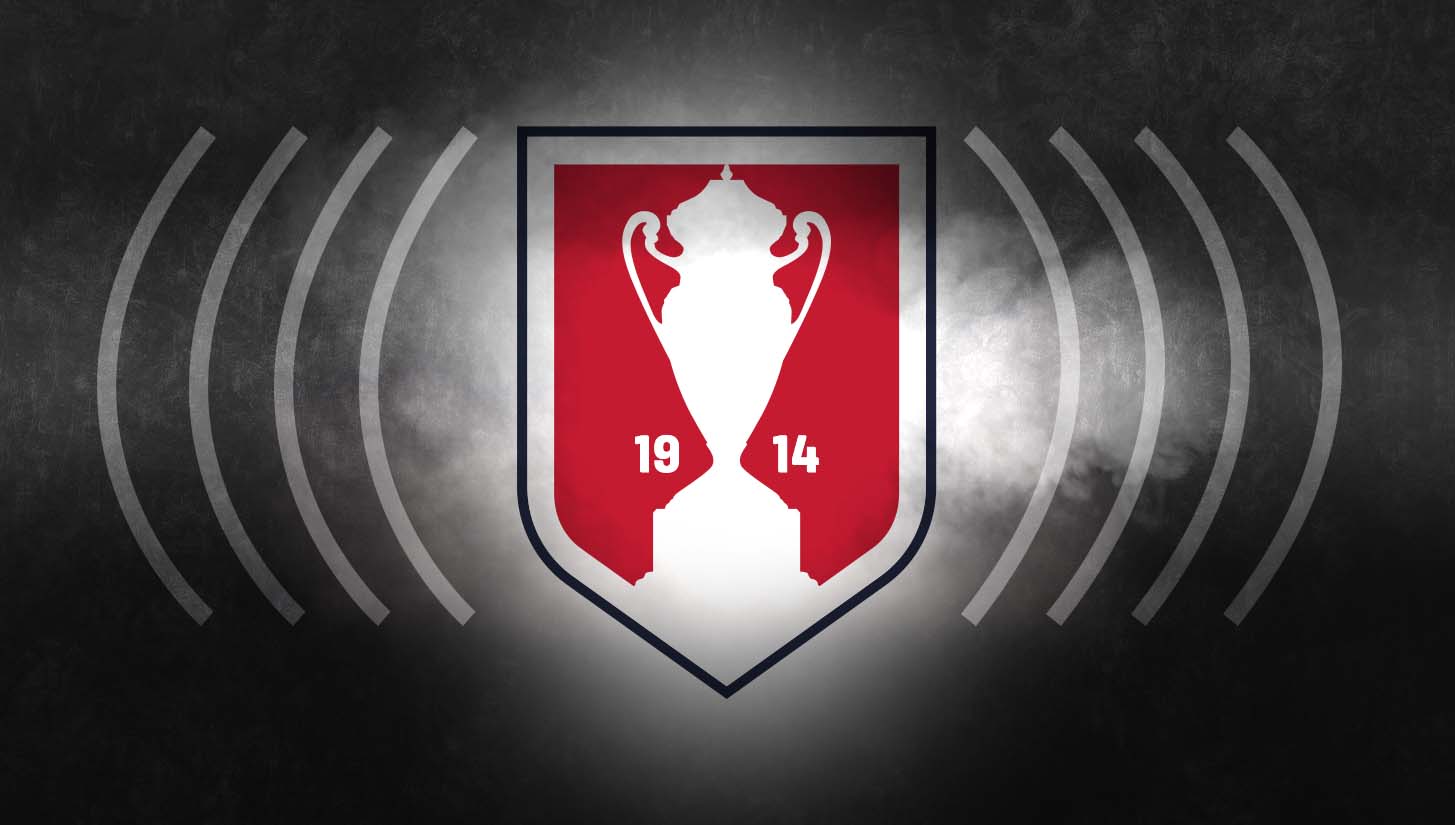
MLS’ poor judgment in trying to get out of the oldest tournament in American soccer was a PR nightmare and rightfully scrutinized. However, MLS does have a point. The U.S. Open Cup needs to be more relevant, and if Messi’s TyC Sports broadcast proves, there can be not only a domestic audience, but an international audience for the club cup competition.
The problem for MLS with the U.S. Open Cup is that it promotes and showcases the MLS product outside of the Apple TV paywall. Pulling out of the Open Cup entirely is an alternative to what many clubs were already doing, which is playing its reserve or academy rosters during the tournament.
While U.S. Soccer will win the war on public opinion with the U.S. Open Cup, the reality is, not many people are watching or buying tickets for the tournament in its early stages, and doesn’t really become a talking point until the semifinals.
The 2024 Outlook
2024 will be more about how things look off the field than on it for MLS. How will year two of an Apple deal with very limited information once and for all prove that MLS is growing on a streaming platform? How many eyes that are actually watching MLS games will most likely remain a mystery until there is something truly positive to report.
Inter Miami will be the team most talked about, and we will see if that shiny packaging is truly able to string a winning streak and elevate not only the team but the league as well. Messi on a losing team will lose steam very fast, and could easily get lost in the mix during a jam-packed summer of soccer.
For many reasons, 2024 is all about Messi and Inter Miami in regard to relevancy, and in the boardroom it is the league’s biggest card to drive up its revenue. To many, it’s a woeful mistake by MLS to put all its eggs in one basket, when raising the cap could have leveled the playing field across the board.
2024 hasn’t even gotten underway for MLS, and already there are interesting subplots that are much more important than who wins the Golden Boot or even the MLS Cup.








